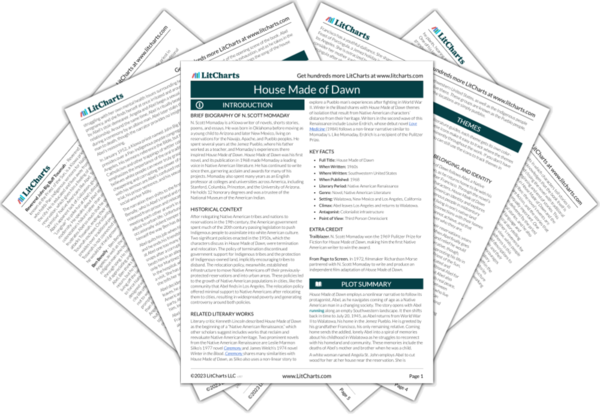Though Tosamah himself is Native American, he considers himself more sophisticated and “civilized” than Abel because Tosamah is better able to navigate white America. Tosamah hates colonialist systems and the oppression they impose on Native Americans, but he perpetuates colonialist and racist stereotypes by repeatedly calling Abel “uncivilized” and “primitive.” He reduces Abel to the stereotype of the “noble savage,” a primitive man untainted by the corrupting forces of civilization. Despite this perception of Abel, Tosamah also believes that Abel is negatively influenced by Catholicism, which he describes as a project of colonialism, though Ben dismisses that black-and-white worldview.
